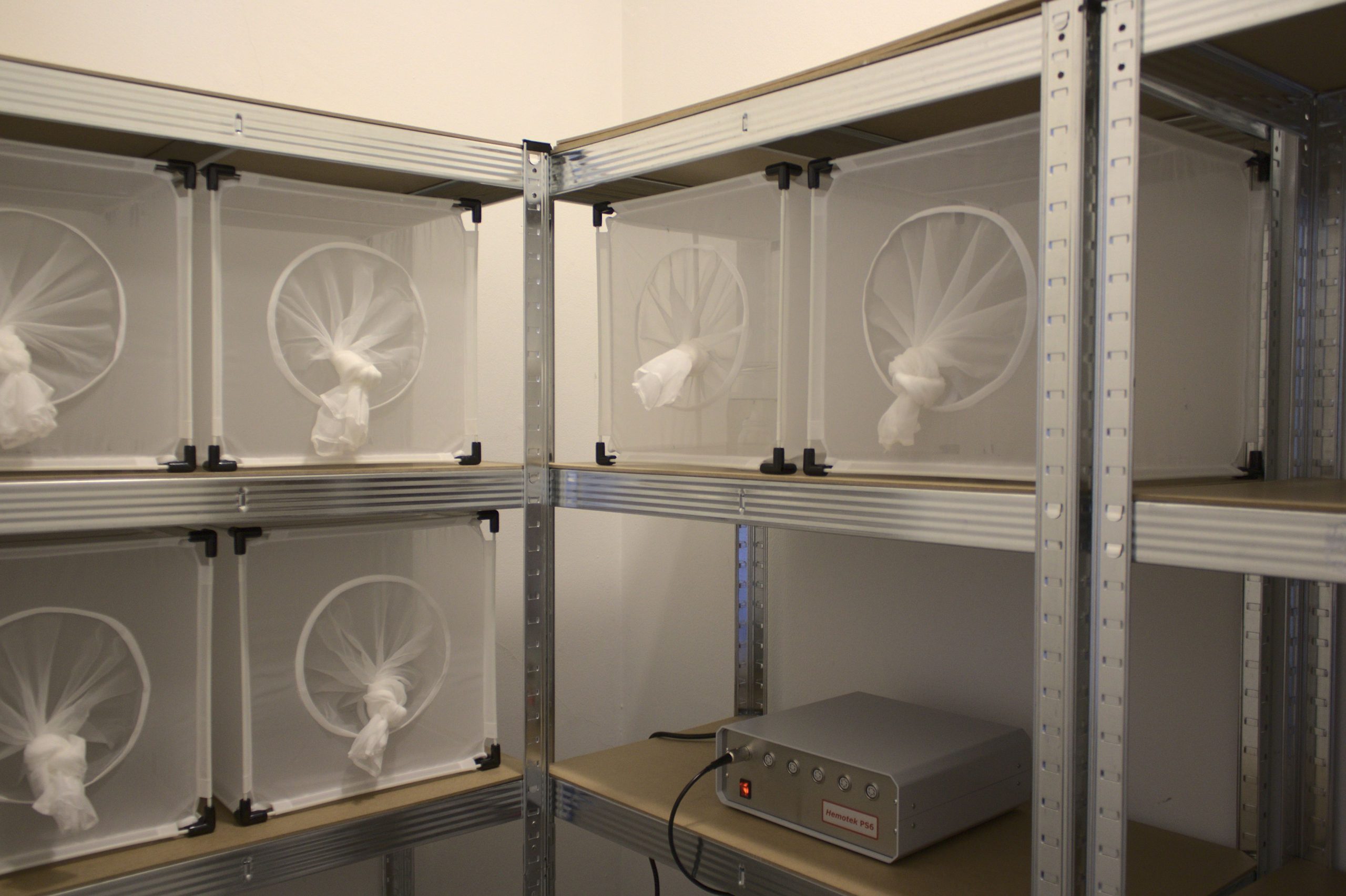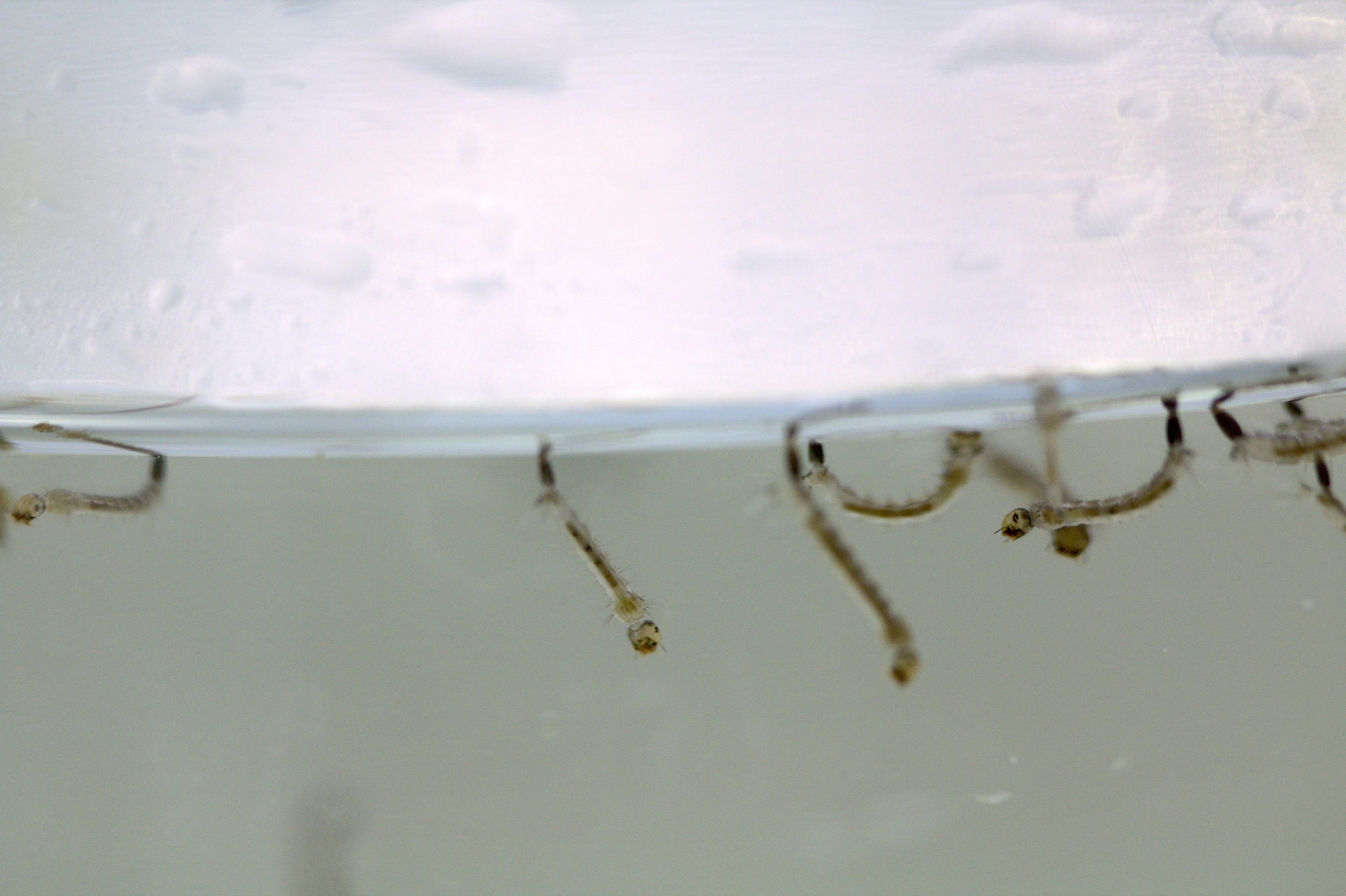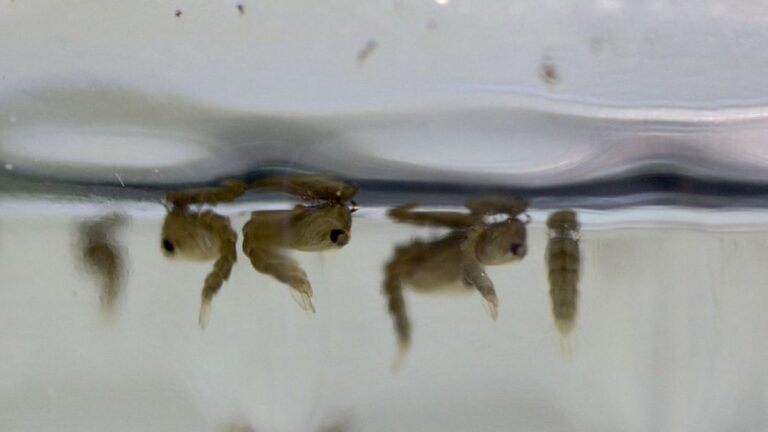Researchers of the National Laboratory for Health Security’s Mosquito Monitor program created a new laboratory to breed invasive mosquitoes and to study their acoustic ecology. Adult individuals of the tiger mosquito (Aedes albopictus), which is bred here, feed on nectar in the wild, but get sugar-water instead in the lab. In order to produce eggs, females are fed with sterile cow blood via the Hemotek system, a device designed specifically for feeding blood sucking insects. The lab follows the arthropod containment guidelines, in order to prevent any potential escapes.

The researchers built a soundproof box with camera and microphones inside, with which they are able to record high quality footage even of low sound intensity. Audio recordings can be analysed using a specialised software, thus several acoustic variables can be extracted. The variation in sound can also be linked to the mosquito behaviour, recorded using the video camera.
Two projects are currently running in the lab. The first one is the identification of mosquito species based on sound, with the help of artificial intelligence. The second project aims to better understand the acoustic communication of the female and male tiger mosquitoes during the mating sequence. In some other mosquito species it has been shown that the male and female converge toward the same sound frequency right before mating together. This capacity of changing the flying sound and to adjust to the potential mate could play a significant role in mate choice and sexual selection. A better understanding of this phenomenon could help develop efficient techniques in mosquito control.

This research was supported by the National Talent Programme of Hungary and the Prime Minister's Office (NTP-NFTÖ-21-B-0288), and by the National Laboratory for Health Security (RRF-2.3.1-21-2022-00006), Centre for Ecological Research, Budapest, Hungary.



